Nutritional value and chemical composition of cottage cheese per 100 grams
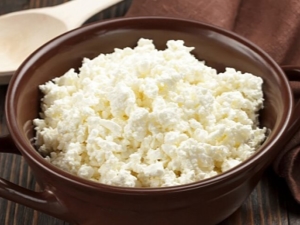
Of all dairy products, cottage cheese is especially popular. And if in adulthood its use depends on the taste preferences of a person, then in the diet of a child it can be found without fail. Information about the benefits of the product can be heard from a variety of sources. And only by considering the components of cottage cheese and its characteristics, you can really be convinced of this. Usually all the most necessary data about the product can be read on the label.
Pay attention to the composition of the product. If, in addition to milk and sourdough, it contains hardeners (calcium chloride), enzyme preparations and preservatives, the benefits of such a product for the body are reduced.
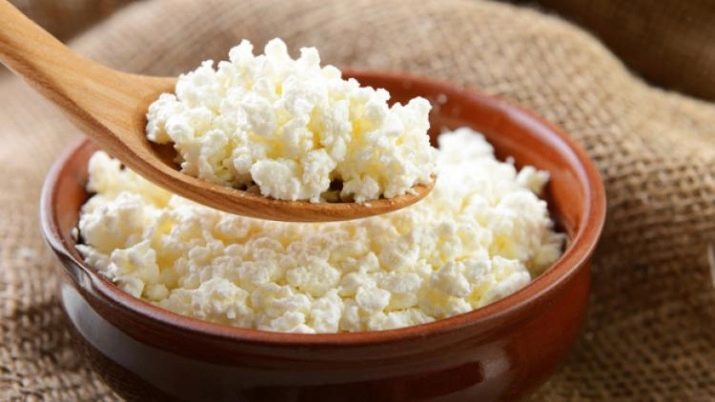
Nutritional value of cottage cheese
To determine the nutritional value, it is necessary to consider the content of proteins, fats and carbohydrates (BJU) in cottage cheese. In terms of protein content, this product occupies one of the leading positions. In addition, the protein in this form has positive features:
- animal proteins, unlike vegetable proteins, contain balanced amino acids necessary for the growth and development of the body;
- thanks to special fermentation processes, it is better absorbed;
- It is divided into fast (provides energy after consumption in a short time) and slow (prevents the feeling of hunger for 5 hours).
For people seeking to build muscle mass and consume a lot of protein, another plus is the rather low cost compared to the same meat or fish. Carbohydrates are presented here in the form of so-called milk sugar (lactose and galactose) and require the appropriate enzymes for their breakdown.
All kinds of sweet-tasting curds contain several times more carbohydrates than natural ones.
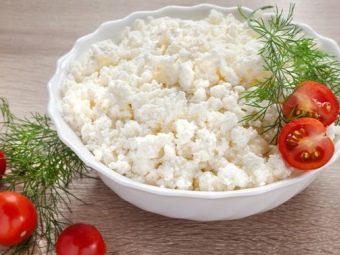

Another important indicator of cottage cheese is its energy value. It is also called caloric content, since this indicator is measured in kilocalories (kcal) per 100 grams of product. Usually different types of cottage cheese differ in their fat content. The higher it is, the more calories. The content of carbohydrates and proteins in different cottage cheese is approximately the same (on average 2 and 16 grams, respectively). Cottage cheese can be conditionally divided into three groups:
- low-calorie (1% - 79 kcal, 2% - 86 kcal);
- medium-calorie (4% - 104 kcal, 5% - 121 kcal, 8% - 138 kcal, 9% - 159 kcal);
- high-calorie (18% fat - 236 kcal).
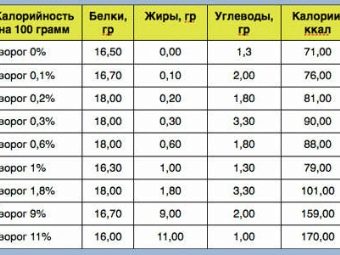
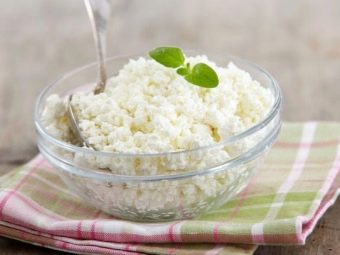
People who carefully monitor their weight pay attention to these figures. To eat varied and at the same time not exceed the daily calorie intake, pay attention to low-fat and low-fat types of this product. Even if you mix them with fruits or cereals, there will be no great harm to the figure. Since weight control is a hot topic, you should consult your doctor when compiling a diet. It is absolutely impossible to refuse the consumption of animal fats, since they are involved in the synthesis of hormones and metabolic processes. In addition, excess weight is also affected by calories obtained after the breakdown of proteins and carbohydrates.
In addition to the above, the choice of cottage cheese with a particular calorie content is also influenced by lifestyle. For a person whose work is associated with heavy physical exertion or regularly involved in sports, high-calorie foods are more suitable. In our case, cottage cheese with a higher proportion of fat. As a result of its combustion, a person will receive a sufficient amount of energy without harm to the body and deterioration of well-being.

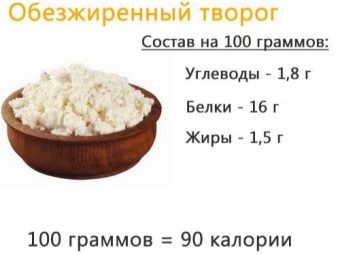
Chemical composition
The packaging usually indicates the main elements. But in fact, in addition to BJU, there are still many different microelements and substances in the composition of cottage cheese. And some are contained in small quantities, so let's list the most significant.
- Water. If we analyze the chemical composition of cottage cheese, then it takes from 60 to 70 percent. This figure varies depending on the method of obtaining (in production or at home), consistency and additives.
- Vitamins - A, beta-carotene, B1, B2, B4, B5, B6, B9, B12, C, PP, E. Their number can be seen in the table. It should be borne in mind that there will be no fat-soluble vitamins in low-fat cottage cheese, so the benefits of such a product are reduced. In addition, they are necessary for the absorption of some water-soluble trace elements.
- Minerals - potassium, calcium, magnesium, phosphorus, iron, copper, fluorine, manganese. Their content must be taken into account if you follow the diet. Naturally, only the use of cottage cheese cannot provide the daily norm of a particular vitamin and mineral. However, you need to make sure that the food you eat throughout the day is balanced. An excess or deficiency of even a single trace element can have its consequences. Some manufacturers produce products with a high content of vitamins or calcium.
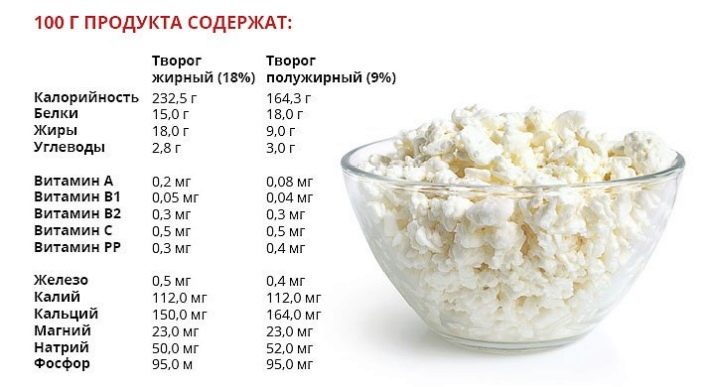
Due to its composition, cottage cheese is prescribed as a mandatory food for children, pregnant women and people with poor health. Cottage cheese is a kind of concentrate of useful substances, since 300-400 grams of cottage cheese is obtained from a liter of milk. By the way, these proportions should be guided by when you doubt the quality - just pay attention to the cost of milk and products derived from it.
As far as we know, cottage cheese is obtained by fermenting milk and separating whey from it. It contains most of the carbohydrates. For people who do not break down lactose completely or partially, it is better to use cottage cheese products. Of course, this is not a solution for people who are allergic to cow's milk protein (casein). These are different diseases and in this case you can try the product only under the proper supervision of a doctor. Another substance that requires caution is gluten. It is not found in natural dairy products. However, it can be in food additives, icing, etc. Therefore, in this case, it is better to give preference to home-proven production and not take risks.
When they talk about the usefulness of cottage cheese, cholesterol often becomes a stumbling block. In curd products, it is contained in reasonable amounts, benefiting hormonal levels and metabolism.
If you eat cottage cheese three or four times a week, there is nothing to worry about. Fat-free products with a low cholesterol content are recommended for vascular diseases and diabetes.


The content of amino acids in the product
Another important component contained in cottage cheese are amino acids. We mentioned them in passing when we described the benefits of protein.They deserve special attention, since not a single process in the body can do without them. They are part of the proteins that form various bones, tendons, muscle and organ tissues, hormones, antibodies and other functional units of the body.
Amino acids are needed by the body as a building material literally every minute, which is especially important for a growing child's body. But there are times when the need for them increases - during illness, physical exertion, weakening of the body. Some amino acids (non-essential) are synthesized by the body itself, others (essential) can only be obtained from food. Curd contains:
- arginine;
- leucine;
- histidine;
- isoleucine;
- methionine;
- valine;
- lysine;
- phenylalanine;
- tryptophan.
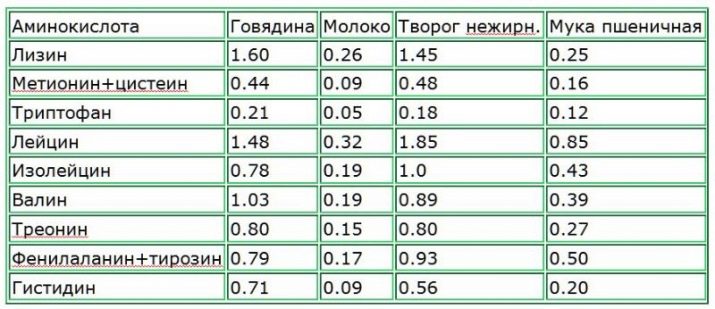
What role do they play in the body?
- affect the growth and accumulation of muscle mass;
- participate in hematopoiesis;
- support the work of the thyroid gland, adrenal glands and liver;
- affect the nervous system;
- necessary for proper metabolism.
Certain tissue needs its own amino acid set. Therefore, it is so important when a problem occurs in the body to adjust the diet. In this regard, cottage cheese is universal. It is recommended for almost any diet - both for diseases associated with the digestive organs, heart, blood vessels, and for weight correction, general strengthening of the body.
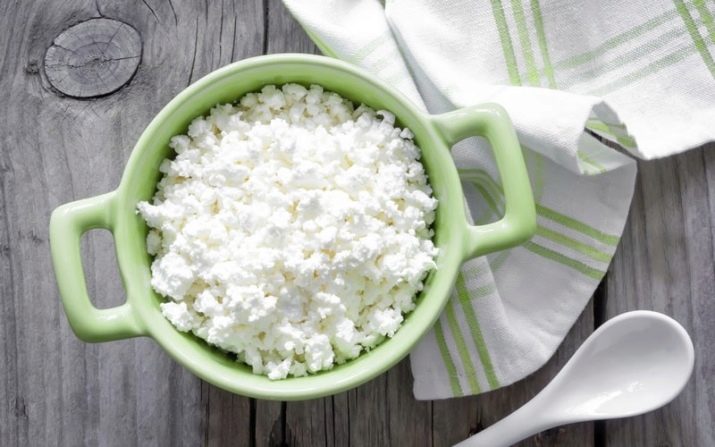
See below for details.

















